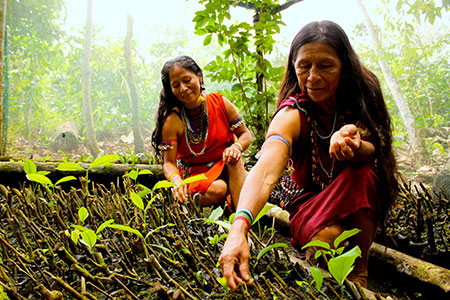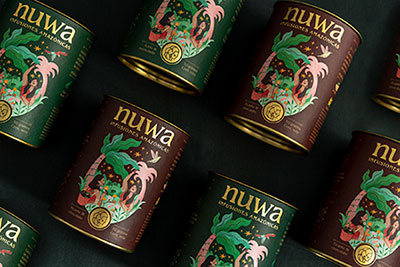News
Medicinal aromatic plants and ancestral knowledge for the empowerment of indigenous women

Through a BioTrade model developed in alliance with indigenous communities of the Kichwa-Lamistas and Awajún ethnic groups in the San Martin region, the Natural Products Laboratory of the Takiwasi Center (Takiwasi Laboratory) promotes the participation and socio-economic empowerment of women producers of medicinal plants. In this way, people and nature are benefited, combining the sustainable development of native communities and the regeneration and conservation of the forest and Amazonian biodiversity.
The Takiwasi Laboratory manufactures natural products for health and well-being from medicinal and aromatic plants, inspired by the ancestral knowledge of traditional Amazonian medicine. Its BioTrade model, developed in partnership with indigenous communities from the San Martin Region, is considered pioneering in the implementation of a fair and equitable distribution scheme of the benefits derived from the use of collective knowledge, that exceeds the scope of current Peruvian legislation by focusing only on knowledge that resides in the public domain.
82% of the medicinal and aromatic plants processed to manufacture and market natural products and herbal teas come from indigenous and peasant communities. These, in addition to providing the raw material, also actively participate in the production and marketing of these value-added products. Therefore, ancestral knowledge is revalued and the capacities of the communities are strengthened through a training program and the transfer of technologies.
These actions are carried out in coordination with the association of producers of medicinal plants Ampik Sacha, which, in addition to being an exclusive supplier of plants for the Sumak brand herbal teas, receives a royalty for each finished product that is marketed.
Under the same inspiration, the Takiwasi Laboratory also works with the Nuwas (women in the Awajún language) of the Shampuyacu native community, in the province of Rioja. In alliance with the NGO Conservation International, the Takiwasi Laboratory executes the project "Generation of added value in aromatic medicinal plants as a strategy for the conservation and inclusive development of the native communities of the Peruvian Amazon", which seeks to contribute to economic development in harmony with indigenous culture, through activities that enhance native biodiversity, standing forests and ancestral knowledge.

Thanks to the accompaniment and training received, the Shampuyacu community has been able to identify and register before the National Institute for the Defense of Free Competition and the Protection of Intellectual Property (INDECOPI) 110 recipes on the use of medicinal and aromatic plant species. Part of this knowledge is now being valued in a line of medicinal aromatic herbal teas, whose brand and records are wholly owned by the community. To achieve this, the Takiwasi Laboratory trains the Nuwas with workshops on the procedures for the manufacture and quality control of herbal teas, while reflecting on how they should be organized within the community and with their allies, to give economic sustainability to this project. In February of this year, the packaging of Nuwa herbal teas, made with medicinal plants such as clavo huasca and ginger, won an award at the Latin American Design Awards, an important international graphic design competition, and very soon the herbal teas will be launched to the market.